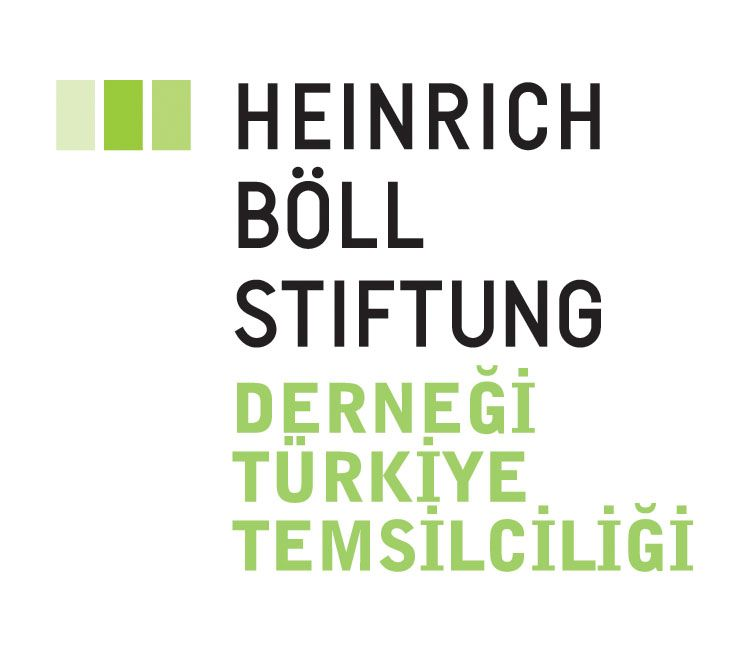Impact of Russia-Ukraine War on Turkish Foreign Policy – Çiğdem Üstün

February 24th, 2022, has been a turning point in the
foreign policy directions of several countries. Finland and Sweden abandoned
their long-term non-alignment policy and decided to become NATO members. The EU
imposed sanctions on Russia and took quick steps to decrease its dependence on
Russian energy sources. While not participating in the sanctions and
anti-Russia camp, Turkey is demonstrating its position as pro-Ukraine. Turkish
Ministry of Foreign Affairs stated that it does not recognize Russia’s decision to annex
Donetsk, Luhansk, Kherson, and
Zaporizhzhia. Turkey’s Bayraktar drones have been referred to as a game
changer, increasing Turkey’s visibility in the war. By June 2022, the Ukrainian
defense ministry stated that the country had received 50 armed drones from Turkish arms company
Baykar.
Just after the attack on Ukrainian territory, Turkey
called the invasion war, and FM Mevlüt Çavuşoğlu declared that “[Turkey] will implement the Montreux Convention”, which meant
prevention of warships belonging to belligerent states from passing through the
Straits except returning to their home bases, significantly limiting Russian
warships’ mobility between their headquarters in the Black Sea and missions in
the Mediterranean Sea.
Sweden and Finland’s applications for NATO membership
emphasized Turkey’s position as a NATO ally with equal voting rights. Turkey
opposed their membership because of their support to the PKK-related PYD and
their arms embargo on Turkey since 2019. By the end of June 2022, Turkey,
Finland, and Sweden signed a Trilateral Memorandum stating that “Finland and Sweden will not provide
support to YPG/PYD, and the organization described as FETÖ in Türkiye” and
“Finland and Sweden confirm that now there are no national arms embargoes in
place between them. Sweden is changing its national regulatory framework for
arms exports in relation to NATO Allies”.
Since the war in Ukraine started, Turkey has also fostered
its position as a regional power that can act as a mediator. Turkey played a
facilitation role in the grain deal between Ukraine and Russia. The agreement was referred to as “a beacon of hope” by U.N. Secretary-General
Antonio Guterres. A Joint Coordination Center was established in İstanbul to
monitor the implementation, including the representatives of Ukraine, Russia,
and Turkey. Since August 2022, 122 voyages from Ukraine and 144 voyages to Ukraine have been assisted through this center. Another
facilitation effort of Turkey was the exchange of prisoners of war between
Russia and Ukraine. In September 2022, more than 200 prisoners were released after the agreements were brokered by Turkey and
Saudi Arabia.
One can observe that since the start of the Russia-Ukraine
War, Turkey has been taking steps to present itself as a balancing actor
between the East and the West without being anti-Russian. In the past, Turkey’s
role in the Black Sea was perceived as a peculiar one. Although it has been a
NATO ally, it was not supportive of American presence in the region and opposed
other allies such as Romania. Current Turkish policy highlights its NATO
membership while keeping diplomatic channels open with the East, connecting
both sides.
A shift of axis has been one of the main debating
themes of Turkish foreign policy. The possibility of a strategic alliance with
Russia has occupied the agenda lately, especially since Turkey purchased
Russian S-400 missiles. However, it would be wrong to assume that Turkey and
Russia can be considered strategic allies since their interests and policies
oppose each other in conflict zones such as Syria, Libya, and Ukraine. Turkish
officials repeatedly stated that Turkey supports Ukraine’s territorial
integrity and sovereignty. Although Turkey is not officially participating in
the sanctions against Russia, it is also careful not to allow any institutions or persons to breach the
sanctions.
The war in Ukraine and the increasing tension between
Turkey’s western allies and Russia have had implications for human security.
The territorial integrity and protection of the sovereign rights of Ukraine are
a priority. Still, the dependency on energy sources from Russia has put a lot
of pressure, especially on European countries, as the energy prices are increasing
and citizens’ discontent is increasing. The need for alternative energy
resources and diversification has become one of the most urgent matters in the
political and economic agendas of the EU countries. Here, Turkey’s geopolitical
position again attracts attention with its potential to link alternative energy
resources to Europe. Although Turkey’s desire to become an energy hub is not
new, the need for alternative energy routes is now more urgent than ever. Since
establishing renewable energy sources and infrastructure would not be feasible
to meet the needs of the European countries in the short term, turning to coal
and nuclear energy and finding alternative natural gas resources are essential.
Hence, one can observe that Turkey’s (in)famous
geostrategic position and ability to keep diplomatic channels open with the
East is strengthening its hands in relations with its Western allies. However,
statements that would suggest Turkey’s alignment more with Eastern countries,
i.e., joining the Shanghai Cooperation Organization, have the potential to
increase doubts about Turkey’s intentions in an era where geopolitics is on the
rise. As the tension between Turkey’s Western allies and Russia is growing, it
is not hard to project the difficulties in managing a balancing act in the
region and at a more global level.
Similarly, future Russian efforts to increase its
influence to drive a wedge between Turkey and the West would not be surprising.
One should also consider the increasing right-wing politics around the globe,
including in Europe. The political rhetoric is incrementally polarized, and the
emphasis on “us vs. them” is increasing daily. Inferring from previous election
cycles, it can easily be projected that the future is prone to diplomatic rows
and tensions between Turkey and the European countries since Turkey’s
relationship with Europe is not solely a foreign affairs matter but also a
domestic issue reflecting on the identities both in Western countries and
Turkey. In such a fragile and strained political environment, Turkey’s
traditionary approach in the region could be the guide in future endeavors, not
only with the regional countries but also regarding international mechanisms at
a more global level. Thus, Turkey should keep diplomatic channels open and
amicable relations with the eastern countries while remembering its position in
the Western alliance.

Assoc. Prof. Çiğdem Üstün, İstanbul Nişantaşı University
Çiğdem Üstün graduated from Bilkent University, Department of Political Science and Public Administration, and completed her master’s degree in International Relations and European Studies at the University of East Anglia. She completed her PhD on security cultures of the European Union and Turkey at the University of Limerick, Ireland. Üstün is an associate professor in the field of European Union and is a faculty member in the Department of International Relations at Istanbul Nişantaşı University. She has books and articles published by national and international publishers on EU-Turkey relations, EU and Turkey neighborhood policies, which are her research areas.
To cite this work: Çiğdem Üstün, “”Impact of Russia-Ukraine War on Turkish Foreign Policy”, Panorama, Online, 17 December 2022, https://www.uikpanorama.com/blog/2022/12/17/cu-4/

This article has been prepared with the support provided to the International Relations Council and the Global Academy by the Heinrich Böll Stiftung Association Turkey Representative within the scope of the project titled ‘Foreign Policy for the 21st Century; Peaceful, Equitable, and Dynamic Turkey’.
Copyright@UIKPanorama. All on-line and print rights reserved. Opinions expressed in works published by the Panorama belongs to the authors alone unless otherwise stated, and do not imply endorsement by the IRCT, Global Academy, or the Editors/Editorial Board of Panorama.